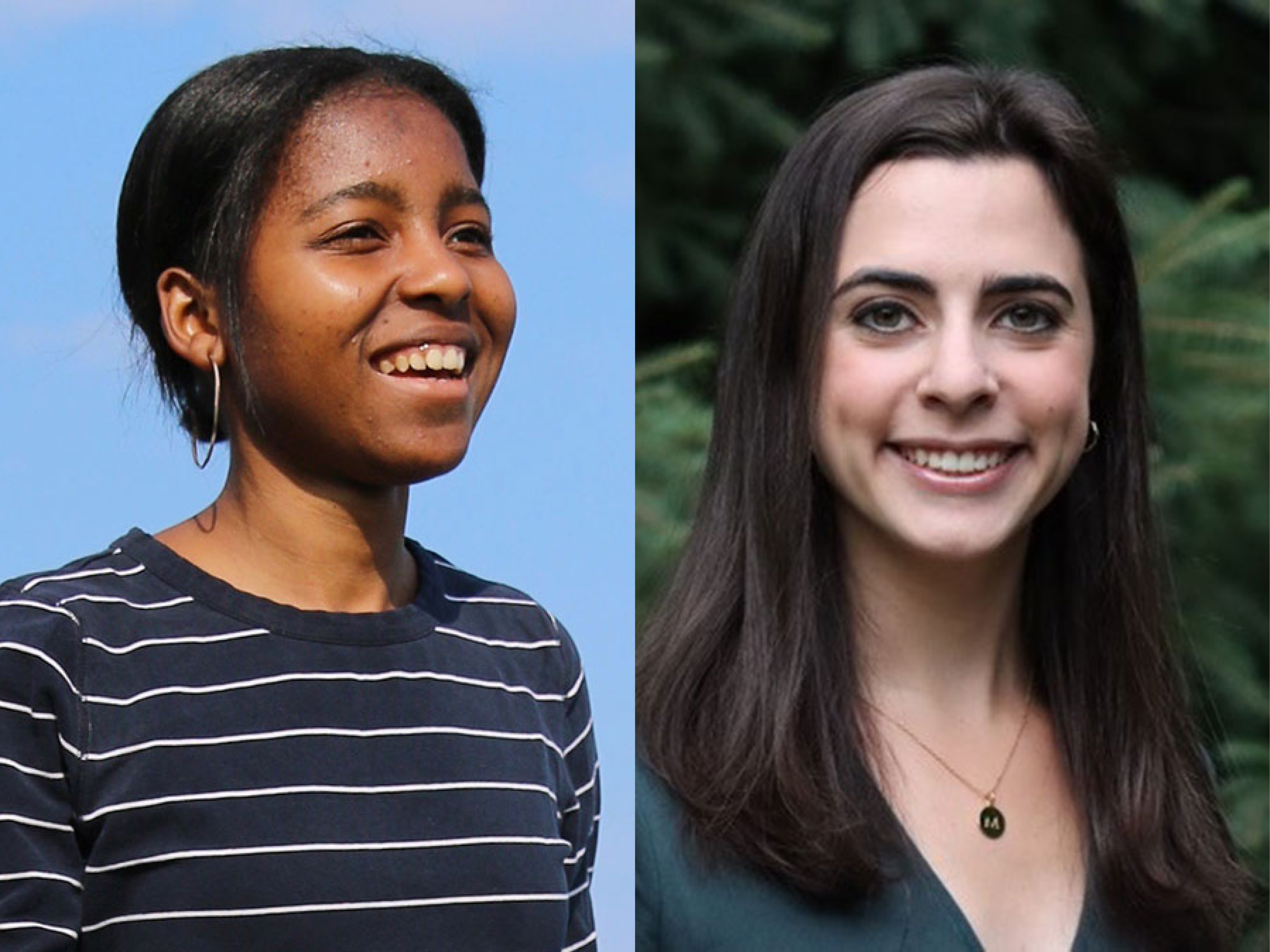Medill junior and senior win Howell Essay Contest
Student essays explore integrity in photography and fact checking

Cassidy Jackson (BSJ21) and Megan Lebowitz (BSJ22) have won the 2020 Walter S. and Syrena M. Howell Essay Competition. The annual contest challenges students to discuss “truth gone awry,” in the context of news gathering and dissemination. The two winners will each receive $2,000.
“This year we had two really stellar submissions to the competition that spoke to the importance of truth in media,” said Medill’s Helen Gurley Brown Magazine Professor Patti Wolter, one of the contest judges. “The panel of judges was so impressed with the pieces submitted by Cassidy and Megan. Both essays were exceptionally well-researched and explored compelling and original topics.”
Jackson’s essay, “The misplaced debate: False reports on activist’s death fuel long-standing culture war on euthanization,” covers the right-to-die debate through the lens of the misreported death of Noa Pothoven—a 17-year-old mental health activist from the Netherlands who ended her own life in 2019 after being rejected by an end-of-life clinic.
The essay discusses how The Daily Mail Online originally misreported that Pothoven had been euthanized in her home with the assistance of an end-of-life clinic. The story was then picked up by major publications such as the Independent, the Washington Post and India Today without verifying the facts of the story. Jackson goes on to explore how a biased perception of the Netherlands as being “wildly liberal” paired with an ever-increasing focus on clicks and engagement by news outlets contributed to the widespread misreporting of Pothoven’s death and fueled arguments against euthanization.
“This story really illustrates the importance of independently verifying information before reporting on a story that has already been covered by another outlet—especially one with a history of misrepresenting or fabricating facts like The Daily Mail,” said Jackson. “It also demonstrates just how easy it is for major publications to let biases interfere with their judgment. In this case, journalists assumed that the Netherlands would allow a 17-year-old to be euthanized. Newsrooms must do a better job of verifying their facts and evaluating their biases especially when reporting on such a sensitive and controversial topic.”
Lebowitz won for her essay “Compressing Six Feet Apart” in which she reflects on a photograph of beachgoers taken for the Orange County Register on the afternoon of April 25. The photograph depicts a seemingly crowded beach full of individuals ignoring social distancing guidelines at a time when the United States had surpassed 50,000 coronavirus deaths. The essay explores the photographer’s use of a telephoto lens that can cause images further from the photographer to appear larger and closer together. While the photo was not doctored, Lebowitz concludes that newsrooms need to be prepared to evaluate their photography and videography ethics as well as their transparency.
“I wanted to explore how photography techniques can change people’s perception of distance at a time when the distance between people can mean life or death,” said Lebowitz. “It’s important that newsrooms evaluate their photojournalism methods and transparency to make sure scenes are depicted as accurately as possible.”

